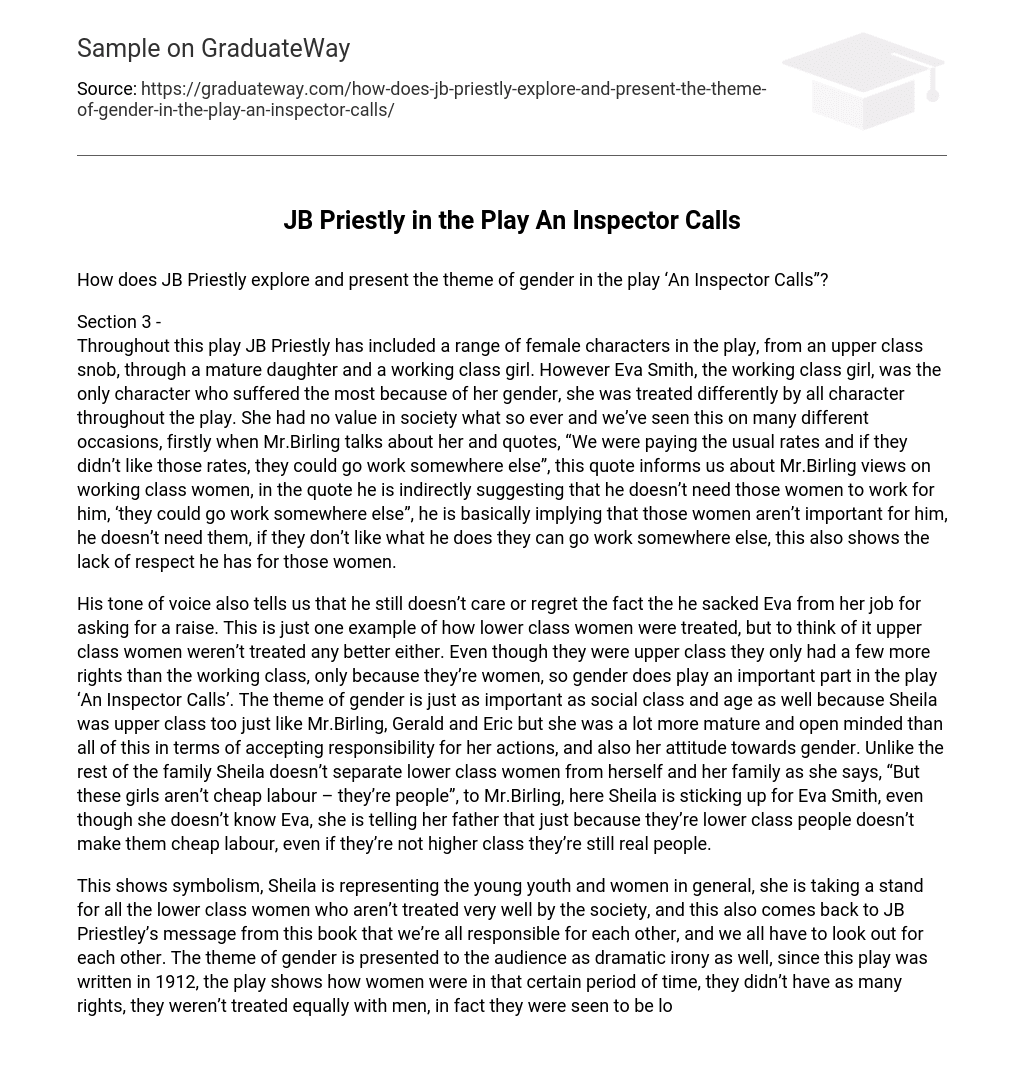JB Priestly’s exploration and presentation of the theme of gender in the play ‘An Inspector Calls’ is investigated.
Section 3 –
Throughout the play, JB Priestly has included a variety of female characters, including an upper-class snob, a mature daughter, and a working-class girl. However, it is the working-class girl, Eva Smith, who suffers the most due to her gender. She is treated differently by all the characters in the play and holds no value in society. We witness this on multiple occasions. For example, when Mr. Birling talks about her and states, “We were paying the usual rates and if they didn’t like those rates, they could go work somewhere else,” it becomes evident that he views working-class women unfavorably. By suggesting that he doesn’t need these women to work for him and that they can find employment elsewhere if they don’t agree with his terms, Mr. Birling implies their insignificance to him and displays his lack of respect towards them.
The text emphasizes the lack of remorse and indifference displayed by the speaker when it comes to his decision to fire Eva from her job for asking for a raise. This treatment of lower-class women is just one example, as upper-class women also faced similar mistreatment. Despite their privileged position, upper-class women only had marginally more rights than the working class due to their gender. Therefore, gender plays a crucial role in the play ‘An Inspector Calls’, along with social class and age. Notably, Sheila, who is also from the upper class like Mr. Birling, Gerald, and Eric, differs from them in her maturity and open-mindedness. Sheila takes responsibility for her actions and has a progressive attitude towards gender. In defense of Eva Smith, whom she does not even know personally, Sheila asserts to Mr. Birling that lower-class women are not mere cheap labor but real people deserving of respect.
The passage discusses the symbolism embodied by Sheila, who represents both young people and women. Sheila advocates for mistreated lower-class women, aligning with J.B. Priestley’s message of mutual responsibility and support. The play also explores gender as a form of dramatic irony, given its 1912 setting when women had fewer rights and were seen as inferior to men. However, by 1945 when the play was written, women had gained more rights due to their wartime contributions, resulting in increased interdependence among women and a more open-minded society.
JB Priestly indirectly highlights the significance of women in the play, both directly and indirectly. An example of this can be seen when the inspector states, “There are a lot of young women living that sort of existence in every city and big towns in this country, Miss Birling. If there weren’t, the factories and warehouse won’t know where to look for cheap labour.” Despite suggesting that these women are exploited as cheap labor, the inspector also implies that these businesses rely on them to operate. This implies that women possess capabilities that are crucial for the functioning of these establishments, emphasizing their importance despite being regarded as inferior to men.





